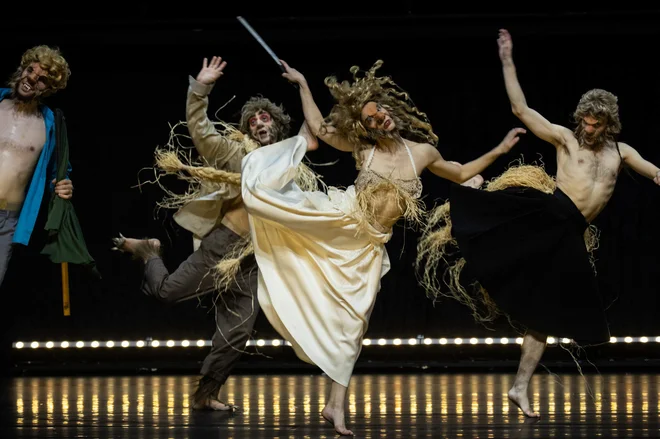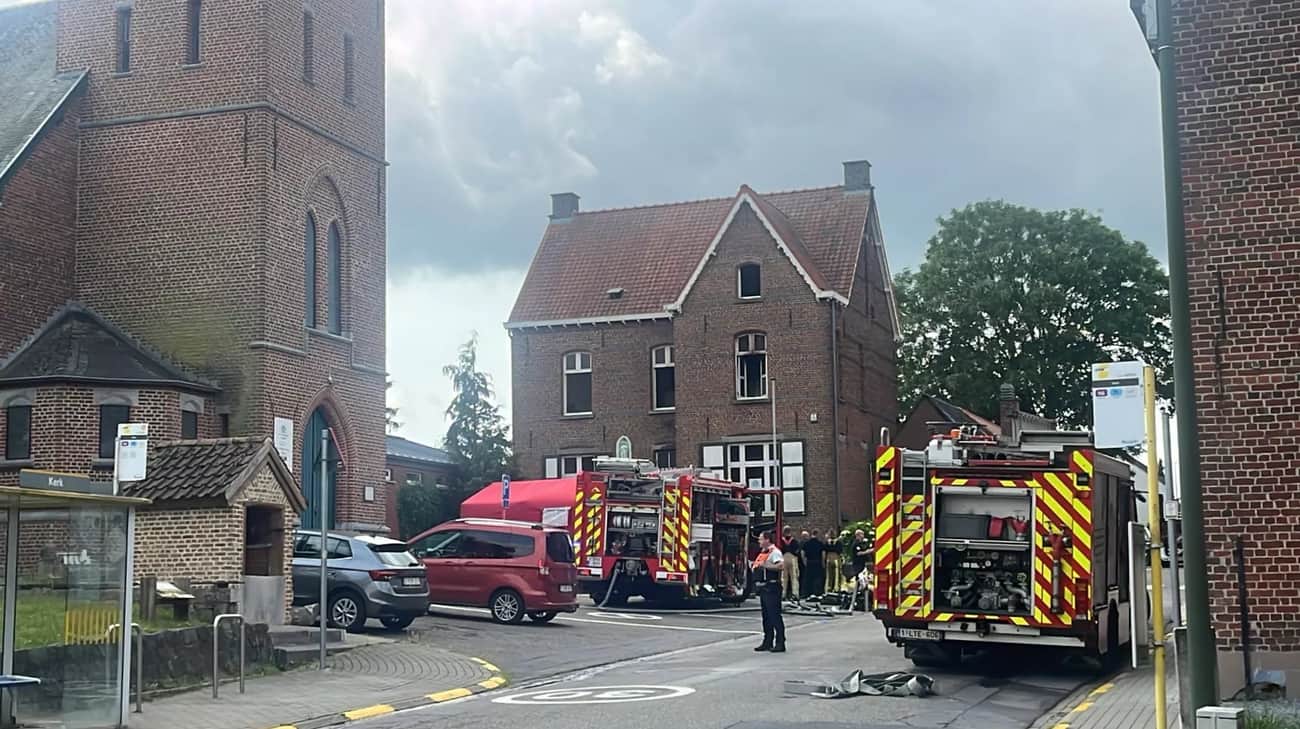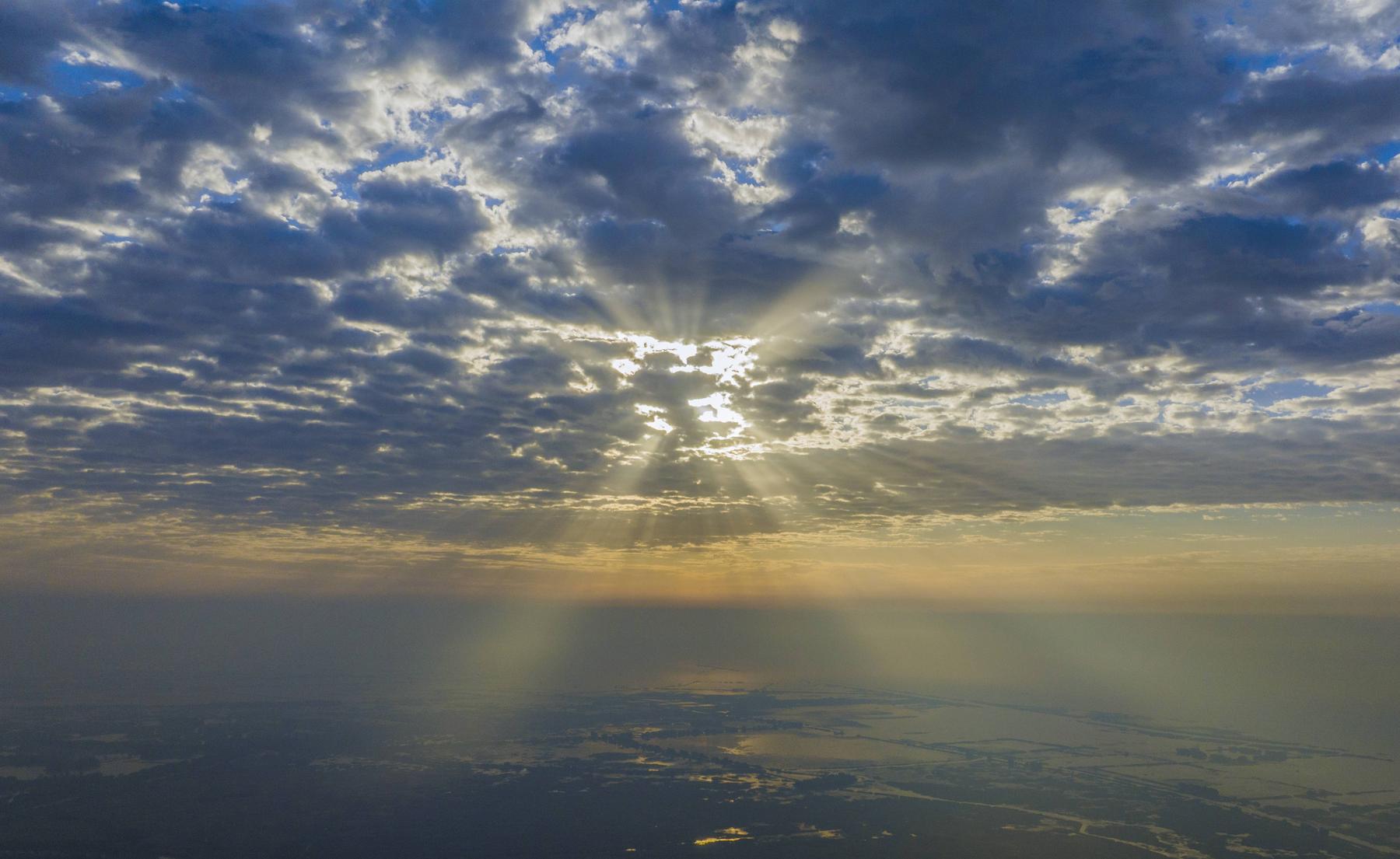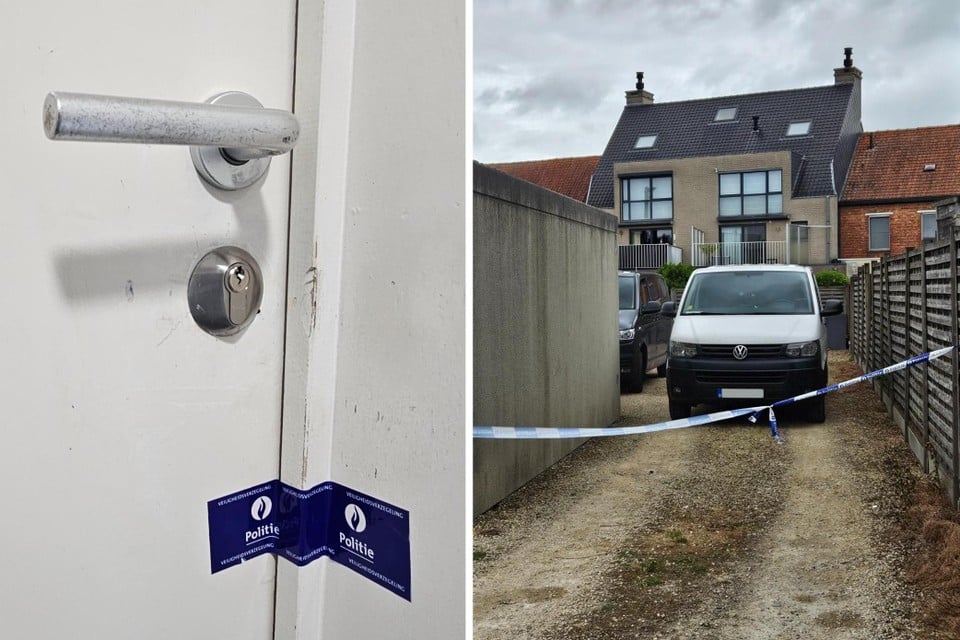Simply happy in Donderen: Edoardo Affini, cyclist from Italy, does not live in Monaco but in Drenthe
/s3/static.nrc.nl/images/gn4/stripped/data131884150-bbb2cd.jpg)
Look, there is the Volcanino. When preparing his espressopotje, Edoardo Affini unmistakably provides an Italian: the coffee is so high in the filter that forms a pointed mountain. The ‘volcano’, as it is called in Italy.
In addition to the host and the percolator, we are further in a completely on-Italian environment: a kitchen table in Donderen, a village of 375 inhabitants in Noordoost-Drenthe, halfway between Eelde airport and the former Veenhuizen penalty colony. A collection of houses around the intersection of two provincial roads – no church, no supermarket, only a snack bar and a caravandealer.
This is the hometown of cyclist Edoardo Affini (28), born in northern Italy and since four years in the service of the Dutch team Visma-Lease a Bike. This Friday he will appear at the start of the Giro d’Italia, his sixth, in a team that consists of Sprinter Olav Kooij, veteran Steven Kruijswijk and all -rounder Wout van Aert from Belgium.
How does a cyclist – a profession who nowadays mainly resides in mountainous tax havens such as Monaco and Andorra – ends up in a Drenthe village? The simple answer is: love. Seven years ago, Affini, then still raving at the promises, met Lisa van Zonneveld from the Peeize, further down. They had started talking after a local Drenthe cycling race, the Battle of Norg. They fell in love and got a relationship. A year ago they bought this house and moved Affini to Donderen.
« We talked about it for a long time, » he says at the espresso and a piece of homemade almond cookie tail. « We could also have moved to Monaco or San Marino because of the tax. But I am so much like to match competitions and at training camp, that I want Lisa to have a place where she can also feel at home alone, without me. » The Van Zonneveld family lives seven kilometers to the north, Lisa works as a nurse in a nursing home – seven kilometers to the west. « Perfect. »
Chat with the neighbor
Which immediately strikes Edoardo Affini: he speaks the language of his new home country – and pretty good too. The majority of the interview is, at his request, in Dutch. No self -evidentness in the murderous cycling, where English is the official language.
Affini finds it « important » to speak Dutch, he says. « If you are going to live in another country, you should at least try to learn the language. It is about small things: you go to the supermarket or have a chat with the neighbor about the weather. »
Not all people think so. Amsterdam is full of expats that don’t think they have to learn Dutch.
« Well, in the Netherlands you can do any English. As a result, you may not feel that you really have to learn the language, because otherwise nobody understands you. »
Apparently the Dutch don’t give you the feeling that you have to learn Dutch?
« Most not, no. In the team, English is the first language, with so many riders from different countries. But when we sit at the table with all Dutch or Belgian boys, then I say: let’s talk Dutch. For me that is normal. If I sit at the table with six Italians and a Dutchman, then we will not talk English, I think. »
« Talking Dutch also helps me to feel at home in the team. The Soigneurs and Mechanicians and team leaders of Visma almost all come from the Netherlands or Belgium. »
Lots of sand and gravel
A year after his move, says Affini, he was pretty established in Donderen – despite his many absence. He did his best: Lisa and he held a housewarming for the neighbors and participated in a bicycle puzzle tour during the annual party week. « The quiz questions about Dutch sayings, » he says laughing, « I just left Lisa. »
In the meantime, Affini has its regular training rounds in Drenthe and the surrounding provinces. « You can drive nicely through the forest here. Towards Grolloo and Gieten … » he picks up Google Maps on his phone. « The De Drentsche Aa nature park is also beautiful, lots of sand and gravel. And if I have to do long training sessions, with intervals, then you have a lot of space here. » He points to the bare, empty landscape of Northeast Groningen. « A lot of wind. »
In comparison with Italy, Affini says, it is « very relaxed bicycles » in the Netherlands – in particular because of the cycle paths. « You have cycling enthusiasts in Italy, but also many motorists who don’t like it at all. For them you are just a loss of time as a cyclist. During a training in Italy you often get told: Vaffanculo!«
Affini grew up in the village of Buscoldo, in the Poblakt, just south of the city of Mantova. He comes from a family of fanatic cyclists: both his grandfather Giulio and his father Roberto were cycling amateurs, they rode racing with the promises. « When I was six, we looked with the family at a cycling race for juniors in the village. Then I told my father: I want that too. That’s how it started. »
For years the whole family went along when little Edoardo rode a competition on Sunday: father, mother, younger sister, grandpa, grandma. « All in one car, even if it was a hundred kilometers drive. Afterwards we went lunch or dinner somewhere. It was a party. Some families went to Florence or to the beach, we went to the race. »
Tota
At the age of seventeen, Affini won the European Cycling on the road for juniors, in Nyon (Switzerland). « Then I thought for the first time: I could become a professional rider. »
Via the SEG Racing Academy, a Dutch training team, Affini ended up in a professional cycling team for the first time in 2019. Two years later he switched to the Dutch Visma formation, where he has developed into a foreman and time trial specialist. Last year he won the most beautiful victory in his career, when he became European Time Trial Champion in Hasselt (Belgium).
« When the last rider had finished and I knew I had won, I became emotional. My whole family was there, plus Lisa and her family. Only my grandfather Giulio was missing, who had died in February. He was the first to I had to think. Grandpa was always my biggest Tifoso. «
His family sees Affini much less now that he lives in the Netherlands – although he was also a lot of home when he was still living in Italy. So he is looking forward to his participation in the Giro – the course of the twelfth stage (finish near Mantova) practically leads his parental home. « Two years ago the Giro also came to Mantova, then I also rode. This time I don’t have time to stop for my family, because by that time we are in the full final of the stage. »
Few Italian champions
The Giro, which starts this year in Albania and then crosses the peninsula from south to north, is widely loved. According to many cycling enthusiasts – not only Italians – is La Corsa Rosa Even the most beautiful of the three large rounds, more beautiful than the Tour de France. Because of the landscape, the time of year and the often unpredictable price trend.
Yet with the Italian cycling itself, it is not so good at the moment. Edoardo Affini is part of a generation of riders without real champions. Of course, Jonathan Milan is a strong sprinter and Filippo Ganna an excellent time driver. There are young talents, such as Antonio Tiberi and Giulio Pellizzari. But the reality is that the Giro has not had an Italian winner since 2016: Vincenzo Nibali, the shark of Messina, was the last one. Never before have so many editions passed without an Italian on the highest step of the stage.
« We miss someone like Nibali, » says Affini. « We have riders in Italy who are doing well, but not a real star. »
Fewer and fewer Italian youth, says Affini, opt for the racing bike – they prefer to play football: more appealing, safer, less hassle. What does not help, he continues, is the lack of an Italian team in the World Tour, the highest level of international cycling. The two Italian teams that appear at the start of the Giro on Friday operate on the second level, with modest budgets and unknown riders.
« Unfortunately, there is currently no big sponsor in Italy who dares, » says Affini. « While a team at the highest level would certainly lend a hand to Italian cycling. For visibility. And as a cart -stretcher. Then there would be more room for young Italian riders and also for staff, such as masseurs and mechanics. »
As a boy, were you the only one in your village who did cycling?
« Yes. But when my father raced, it wasn’t. There were more competitions, more teams and more riders. »
The many doping scandals with Italian riders have not helped, right?
« No, certainly not. Our sport is quite tormented by that. Not only the Italian cycling by the way – with the knowledge of today we know that doping was overall. But in Italy every doping new in cycling is still front page news, while other sports are collected. »
« But look at the figures: cycling is the most controlled sport in the world. As riders, we have no privacy. Now, a doping controller could now come in. And if someone is right at the door, then you have to test. You can’t say ‘no’. Controllo. »
The espresso and the cake are gone. We walk to the barn, where Affini has his bikes. And a roller bank, to be able to train inside. He rarely does that, he says – almost always he goes outside, the roads and cycle paths. Inheritance of the particularly strict Coronalockdown in Italy, when he was locked up in his own house for months. « I always train outside in the Netherlands, even when it rains. Only in extreme weather will I stay inside. »

/s3/static.nrc.nl/images/gn4/data133314127-765aec.jpg)
:format(webp)/s3/static.nrc.nl/wp-content/uploads/2025/06/05163439/data133217982-f902a2.jpg)
/s3/static.nrc.nl/wp-content/uploads/2025/06/06205808/web-0606BINspermadonatie.jpg)




